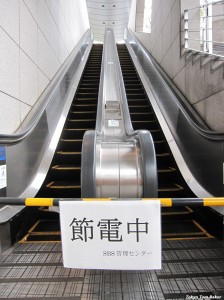I’ll Make It Myself: Flour Tortillas (Bread Revolution Series)
L.M. Zoller (CIR Ishikawa-ken, Anamizu, 2009-11) is the editor of The Ishikawa JET Kitchen: Cooking in Japan Without a Fight. A writer and web administrator for The Art of Japan: Kanazawa and Discover Kanazawa, ze also writes I’ll Make It Myself!, a blog about food culture in Japan, and curates The Rice Cooker Chronicles, a series of essays by JETs and JET alumni on the theme of cooking/eating and being alone in Japan.
New Rice Cooker Chronicles submissions always welcome. Just e-mail it to jetwit [at] jetwit.com.
More Bread Revolution and Guide to Flour.

TexMex/Southwestern/Mexican foods were something I purchased from the grocery or at restaurants in the US, missed sorely in Japan, and was convinced I couldn’t make it myself. If I found salsa in a jar, I couldn’t find chips, so what was the point? Avocados weren’t something I could get my town easily, and forget cilantro or jalapeños. I gave up on my dream of enjoying these foods in Japan, but luckily Cheruko didn’t and put together a fantastic fajita spread for an international cooking lesson.
Job: Administrative Assistant, The Permanent Mission of Japan to the United Nations (NY) 04.27.12
Via Permanent Mission of Japan. Posted by Kay Monroe (Miyazaki-shi, 1995 -97).
————————————————————————————————————
Position: Administrative Assistant in the Social Section
Posted by: Permanent Mission of Japan to the United Nations国際連合日本政府代表部
Type: Full-time
Location: New York, NY
Salary: N/A
Start Date: N/A
http://www.un.emb-japan.go.jp/aboutus/job_opportunities.html
Description:
The Permanent Mission of Japan to the United Nations is seeking an Administrative Assistant in the Social Section at the Permanent Mission of Japan to the United Nations.
Responsibilities include, but are not limited to:
1. Draft and prepare letters and diplomatic correspondence
2. Assist in logistics/protocol for conferences, meetings, briefings, receptions, and other official functions
3. Edit English in both official/unofficial documents
4. Manage appointment schedules for the section, visiting diplomats, and VIPs
5. Attend meetings/conferences at UN as necessary
6. Respond to inquiries
7. Assist other officers and staff in the section when needed Read More
I’ll Make It Myself!: “Bread Revolution: Flour”
L.M. Zoller (CIR Ishikawa-ken, Anamizu, 2009-11) is the editor of The Ishikawa JET Kitchen: Cooking in Japan Without a Fight. A writer and web administrator for The Art of Japan: Kanazawa and Discover Kanazawa, ze also writes I’ll Make It Myself!, a blog about food culture in Japan, and curates The Rice Cooker Chronicles, a series of essays by JETs and JET alumni on the theme of cooking/eating and being alone in Japan.
New Rice Cooker Chronicles submissions always welcome. Just e-mail it to jetwit [at] jetwit.com.
One of the biggest challenges–and triumphs– for me during these 2.5 years living in Japan has been creating bread products I could easily purchase back in the US: pitas, tortillas, flatbread, pizza dough. I experimented (usually disastrously) with a few things in year 1, namely pizza dough, which was passable but not fantastic, and tea bread, which refused to cook through no matter how I reduced the recipe or what device in which I baked it.

My first success was whole-wheat soda bread. Pizza dough took two years and five different recipes. Tortillas and pitas, which I was stupidly convinced couldn’t be made at home until Cheruko of Hokuriku Expat Kitchen decided they could, turned out to be incredibly simple. I, like many Americans, thought bread-making was some sort of epic process, a choice between hours of kneading and rising and punching dough or investing in a breadmaker that would take up precious storage space. It’s really not that bad. I’ll speak more on this later with each recipe’s time-commitment information, but I full work-time, work out, have an active social life and hobbies, and I still have time for bread-making. The rising time, depending on the recipe, is often ideal for cooking the rest of a meal, enjoying a TV show or book, or even an evening trip to the gym for the longer risers.
So, now that you’re less worried about OMG BREAD, let’s get started on building your expat bread factory. First, we need to have a chat about types of flour.
Signs of a setsuden summer
Posted by Tom Baker (Chiba-ken, 1989-91), coauthor of The Sushi Lover’s Cookbook and Tokyo Chic and contributor to Time Out Tokyo and Time Out Shortlist Tokyo. He blogs as “Tokyo Tom Baker.”
 “Setsuden,” or conserving electricity, has become a huge buzzword in Japan as the weather heats up and many nuclear power plants remain shut down. Many businesses have put up signs explaining their own setsuden activities and asking the public to join in.
“Setsuden,” or conserving electricity, has become a huge buzzword in Japan as the weather heats up and many nuclear power plants remain shut down. Many businesses have put up signs explaining their own setsuden activities and asking the public to join in.
Recently I have been been photographing setsuden signs around the Tokyo area for my blog.
Some of the signs are very simple and functional, like the message seen here on a closed escalator at a train station, which simply says, “Setsuden-chuu.”
Others are clever pieces of writing and/or graphic design.
I have a gallery of signs here, as well as explanations of my picks for the best-designed sign here and the best slogan here.
By Thien-Kieu Lam (Kagoshima 2003-2006), an artist who is producing Bound in Japan. Bound in Japan is a community book art project that aims to promote awareness about diversity in Japan and enhance intercultural understanding by engaging native and non-native residents in the creation and sharing of book art.
Pull open the covers and rows of “flags” pop up in salute! And thus Hedi Kyle’s invention became known as the flag book. With so many pieces, it looks complicated but is relatively easy and fun to assemble. The flag book structure was the focus of my second demo class which met during November and December of last year.
My five dedicated participants are all former residents of Japan. One is a native Japanese, and the others had either taught in Japan or studied there. Over the course of five sessions, the participants created a model of the structure, did writing exercises to generate content, and produced the final product.
Two of the books can be seen in the above picture. Erin’s book (left) focuses on the contrast between the calm and chaos she found in Japan, and Danielle’s book (right) indulges in her love of Japanese onomatopoeia and is accompanied by English haiku.
To see more photos from the class, go to the Bound in Japan blog.
Japan Group Looking to Ease Immigration Policy
Andrew R. McCarthy (Akita-ken, 2005-08) is a law student at The Ohio State University Moritz College of Law focusing on international trade, business, and tax. He currently runs the blog JETs with J.D.s, an information source for current JET alumni law students and prospective law students for career paths and approaches within the current legal market. For those considering law school and trying to comprehend the costs and the risks of such an endeavor, he also recommends The Law School Tuition Bubble.
Though still clearly in the concept stage, last week saw a report by a Japanese group of politicians, business leaders, and academics looking to ease immigration policy and bring in more foreigners. Combined with the efforts to send Japanese teachers to the U.S. to enhance their English, this marks a significant change in stance for Japan, assuming all of these great ideas turn into action.
Links to the source articles can be found here.
**********
JET Return on Investment (ROI) is a new category on JetWit intended to highlight the various economic, diplomatic and other benefits to Japan resulting from its investment in the JET Program. Why is this important right now? Because the JET Program and JET Alumni Association may be cut by the Japanese government, as explained in this post by Jim Gannon (Ehime-ken, 1992-94) titled “JET Program on the Chopping Block.”
JET alumni and current JETS:
Please click here to sign the petition
http://www.change.org/petitions/view/save_the_jet_program
(Make sure to list your prefecture and years on JET in the “Last Name” field.)
From the petition:
“As part of Japan’s efforts to grapple with its massive public debt, the JET (Japan Exchange & Teaching) Program may be cut. Soon after coming into power, the new government launched a high profile effort to expose and cut wasteful spending. In May 2010, the JET Program and CLAIR came up for review, and during the course of an hourlong hearing, the 11-member panel criticized the JET scheme, ruling unanimously that a comprehensive examination should be undertaken to see if it should be pared back or eliminated altogether. The number of JET participants has already been cut back by almost 30 percent from the peak in 2002, but this is the most direct threat that the program has faced in its 23-year history.
“We are asking JET Program participants past and present, as well as other friends of the program to speak out and petition the Japanese government to reconsider the cuts and explain to them what the return on investment of the JET Program is in the form of individual experiences and stories. Please sign this petition in support of the grassroots cultural exchange the JET Program has fostered and write directly to the Japanese government explaining the positive impact the Program has made in your life and that of your adopted Japanese community.
“For more background on this issue, please refer to “JET Program on the Chopping Block” by Jim Gannon on jetwit.com.”
Elementary ALTs sought by RCS (Matsumoto)
Via the Naganojet Yahoo group:
Real Communication Solution (RCS) is looking for full-time ALTs for elementary schools.
Job Details:
*Monday to Friday 8:30 to 4:30
*Contract period from April 2010 to March 2011
*Salary to be determined based on experience 210,000~240,000
Via the Iwateminions Yahoo group:
NPO Zenrinkan, one of the older English conversation schools in Morioka is in need of a new teacher from June/July! It’s a great place to work, and well established, having been around for 60 years. You get a lot of control over your classes, and classes are fairly small, around 4 students on average.
The salary starts at 250,000 yen per month, and then deductions are taken out for taxes and national health insurance. You get 2 weeks of paid vacation per year, and can take it nearly any time, although they do encourage you to take it during breaks from classes. Zenrinkan will also sponsor any new hire that needs a visa. The typical week is 38 hours of office time, which includes 22 class hours. Those classes are about 1/2 kids classes, and 1/2 adult conversation classes, with a couple college classes and yochien lessons included a few times a month.
If you are interested, please feel free to e-mail a cover letter and resume to Nobuko Sano at class@zenrinkan.com or to Alicia Ferong at aferong@gmail.com.
Job: Full-Time Teacher at Tsukuba International School (JAPAN)
The Tsukuba International School in Ibaraki, Japan is looking for a full-time elementary school teacher. The candidate must be a native English speaker with a degree in education (or related field) and teacher qualifications. The school is not a conversation school, but rather a full-time elementary school where children learn all of their subjects in the English language.
QUALIFICATIONS: Note – these are non-negotiable requirements.
- Native English proficiency.
- University degree in education (preferably with elementary specialization, i.e. ages 6 to 12) from a country with an English language-based curriculum. (A degree in “Teaching English as a Second/Foreign Language” is not sufficient.)
- Qualifications to teach in a jurisdiction with primarily English-based education. (This means that the candidate must be a qualified teacher in a country such as Australia, Canada, Ireland, the United Kingdom, or the United States.)
OTHER PREFERENCES:
- Experience teaching in an elementary school.
- Experience teaching at an international school, or in a multicultural environment.
- Experience teaching non-native speakers of English.
- Experience teaching the Primary Years Programme of the International Baccalaureate.
- Familiarity with inquiry-based learning.
- Experience living in Japan, or living abroad.
RESPONSIBILITIES:
- Teach all core subjects: Language Arts, Math, Science, and Social Studies
- Share responsibilities in other subjects: Art, Physical Education, Music, and Media Studies
- Able to manage a dynamic classroom setting.
- Possess the flexiblity to deal with new students and new teaching paradigms gracefully.
- Have a clear understanding of the importance of professional development, through workshops/seminars and independent learning.
HOW TO APPLY:
Submit a resume outlining your education and employment history (including your current position), and give three references who can be contacted. Attach a one-page cover letter stating why you are interested in this position and what you could contribute to our school. Applicants chosen for interviews will be required to submit copies of relevant degrees and certificates. Applications can be sent by postal mail or email. Interviews may take place in person or by web conference. If you have a web camera and a Skype account, please mention that in your cover letter.
POSTAL ADDRESS
Tsukuba International School
Attn: Mr. Masayasu Kano
Kamigo 7846-1
Tsukuba, Ibaraki, JAPAN
300-2645
Please write: “Teacher Application” on the envelope.
EMAIL ADDRESS

Please submit your documents as PDF files or in plain text. Use the subject “Elementary Teacher: September 2010″.
Applications are due by March 15, 2010, but we encourage candidates to apply as soon as possible. Interviews will be held on a rolling basis until a suitable candidate is found. We hope to fill the position by March 31, 2010.



